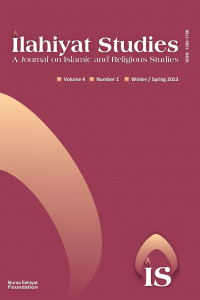Abstract
First paragraph: The Essentials of Ibāḍī Islam is a book to be numbered among the literature relating to the theology of a particular branch of Islam, Ibāḍism, with which the work initiates the reader in its excellent introduction. The author of the book, Professor Valerie Hoffman, is well acquainted with Oman and Ibāḍism due to her long involvement with the subject matter and her fieldwork for long periods in the Sultanate. She writes for both students with some familiarity with Islam as well as the discerning academic who enjoys a systematic exposition of historical events, with an extensive (51 pp.) and highly explanatory introduction on the place of Ibāḍism within Islam and the related research (pp. 3-5), the origins and political history of Ibāḍiyya (pp. 5-7), the development of Ibāḍism as a distinct sect of Islam (pp. 17-26), and the distinctive teachings of Ibāḍī Islam (pp. 26-45), with a further elaboration of some very specific Ibāḍī topics, such as: the status of sinning Muslims, the notions of walāya and barāʾa, the expectation of reward or punishment in the afterlife, free will versus predestination, the anthropomorphic descriptions of God in the Qurʾān, and the debate between various Muslim schools and in popular piety about whether or not they should be under-stood metaphorically; the use of reason and God’s revelation through prophethood; God’s unity, essence, and attributes; the debate about the creation of the Qurʾān; the principles of jurisprudence amongst Sunnī, Shīʿī, and Ibāḍī Islam; and the essence of Islam, which includes “all types of religious knowledge – theological, legal, ethical, and mystical” (p. 44).
Abstract
The Essentials of Ibāḍī Islam is a book to be numbered among the literature relating to the theology of a particular branch of Islam, Ibāḍism, with which the work initiates the reader in its excellent introduction. The author of the book, Professor Valerie Hoffman, is well acquainted with Oman and Ibāḍism due to her long involvement with the subject matter and her fieldwork for long periods in the Sultanate. She writes for both students with some familiarity with Islam as well as the discerning academic who enjoys a systematic exposition of historical events, with an extensive (51 pp.) and highly explanatory introduction on the place of Ibāḍism within Islam and the related research (pp. 3-5), the origins and political history of Ibāḍiyya (pp. 5-7), the development of Ibāḍism as a distinct sect of Islam (pp. 17-26), and the distinctive teachings of Ibāḍī Islam (pp. 26-45), with a further elaboration of some very specific Ibāḍī topics, such as: the status of sinning Muslims, the notions of walāya and barāʾa, the expectation of reward or punishment in the afterlife, free will versus predestination, the anthropomorphic descriptions of God in the Qurʾān, and the debate between various Muslim schools and in popular piety about whether or not they should be under-stood metaphorically; the use of reason and God’s revelation through prophethood; God’s unity, essence, and attributes; the debate about the creation of the Qurʾān; the principles of jurisprudence amongst Sunnī, Shīʿī, and Ibāḍī Islam; and the essence of Islam, which includes “all types of religious knowledge – theological, legal, ethical, and mystical” (p. 44).
Keywords
Details
| Primary Language | English |
|---|---|
| Subjects | Religious Studies |
| Journal Section | Book Reviews |
| Authors | |
| Publication Date | December 11, 2013 |
| Submission Date | April 1, 2013 |
| Published in Issue | Year 2013 Volume: 4 Issue: 1 |


